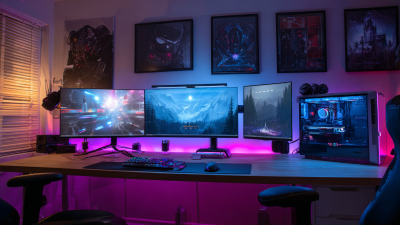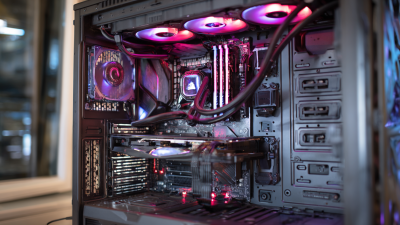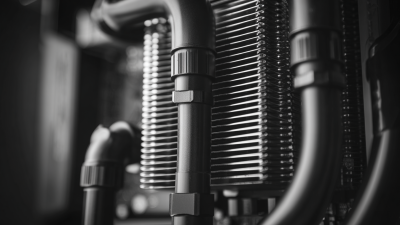Leave Your Message
- Phone
- E-mail
- Whatsapp


In the ever-evolving world of gaming, the significance of selecting the right Gaming PC cannot be overstated. According to a recent report by Jon Peddie Research, the global gaming hardware market is projected to surpass $41 billion by 2025, demonstrating a burgeoning demand for powerful and reliable gaming systems. Furthermore, a study by Newzoo reveals that over 2.7 billion gamers worldwide are in search of high-performance machines that can deliver immersive experiences and seamless gameplay. As the requirements for modern games continue to rise, understanding the components and capabilities of a Gaming PC becomes crucial. This guide aims to navigate through the complexities of choosing the optimal setup tailored to individual gamer needs, ensuring that every gaming session is not just a pastime, but an exhilarating experience.
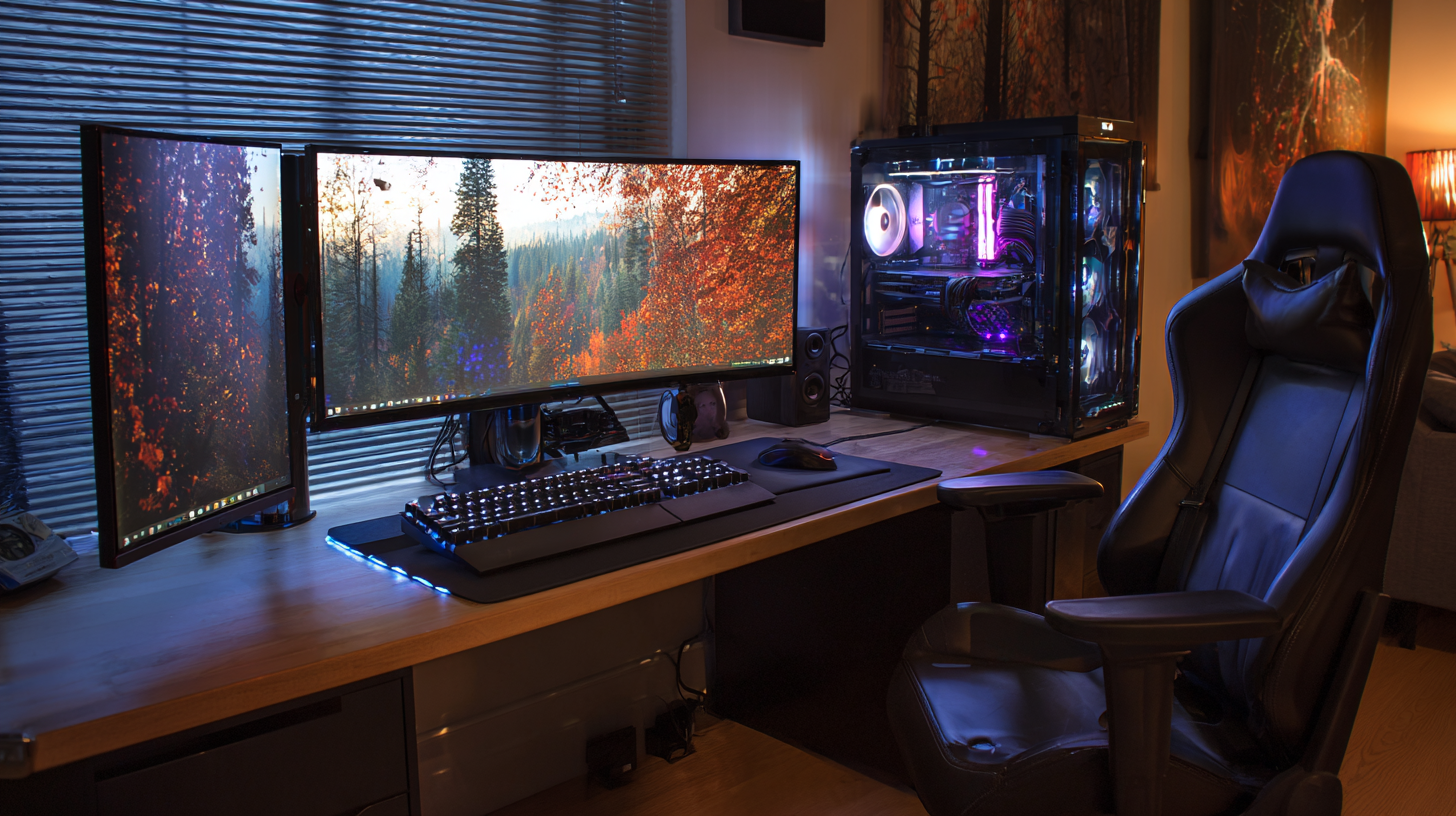
When it comes to choosing the perfect gaming PC, understanding your specific gaming needs is crucial. Different games have various requirements, from graphics-intensive titles to those that lean heavily on processing power. Begin by assessing the types of games you play most frequently. For instance, if you enjoy fast-paced shooters or open-world RPGs, a powerful GPU will be essential for smooth gameplay and stunning visuals. Conversely, strategy games might prioritize a strong CPU and more RAM for multitasking and complex calculations.
Once you've identified your gaming preferences, it's essential to consider the resolution and refresh rate of your monitor. A high-resolution display can enhance the gaming experience, but it demands a more robust graphics card. If you're aiming for high refresh rates for competitive gaming, prioritize a system that can consistently deliver high frames per second. Ultimately, tailoring your PC's specifications to match your gaming style will not only improve your performance but also enhance your overall enjoyment.
This bar chart illustrates the recommended specifications for different gaming experiences based on performance needs. The categories include Casual Gaming, Competitive Gaming, and High-End Gaming.
When selecting the perfect gaming PC, understanding the essential components is crucial for achieving high performance. The CPU, or central processing unit, acts as the brain of your machine. Reports from industry leaders like Intel and AMD suggest that for an optimal gaming experience, a quad-core or higher processor, such as the AMD Ryzen 5 5600X or Intel Core i5-12600K, is recommended. These processors are designed to handle both the demands of gaming and multitasking, ensuring a smooth experience even in the most CPU-intensive titles.
Another vital component is the GPU, or graphics processing unit, which significantly influences a game's visuals and frame rates. According to data from NVIDIA, GPUs are responsible for rendering graphics, and current high-performance options like the NVIDIA GeForce RTX 3080 or AMD Radeon RX 6800 XT can deliver impressive frame rates at high resolutions. A recent benchmark report showed that systems equipped with these GPUs achieve over 60 frames per second in demanding games at 1440p resolution, making them ideal choices for gamers looking for immersive visuals. Additionally, incorporating at least 16GB of RAM ensures that your gaming setup can handle modern titles effectively without bottlenecks, as highlighted by various performance benchmarks.
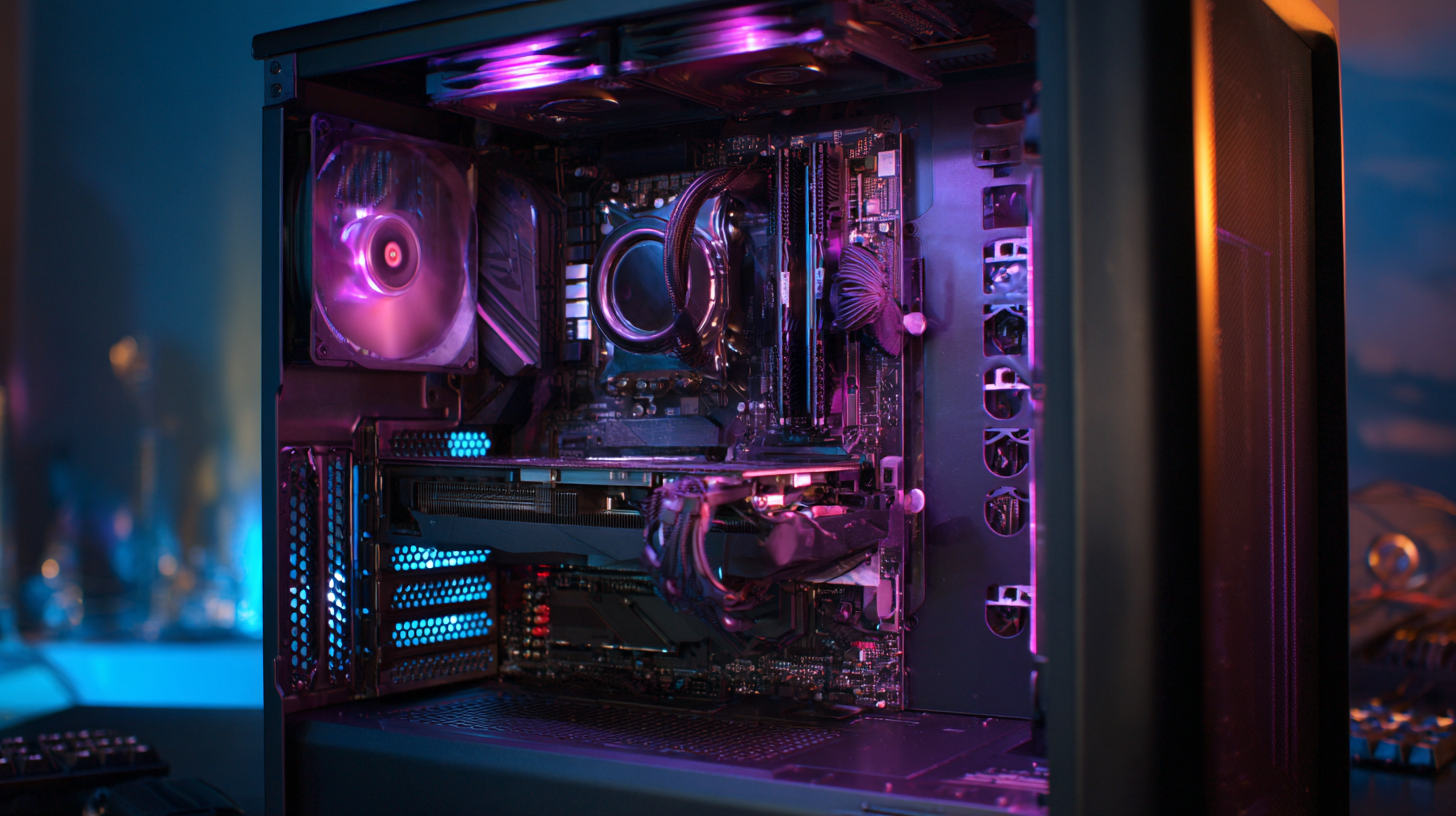
When budgeting for a gaming PC, striking the right balance between cost and performance is essential. According to a report by Jon Peddie Research, over 40% of gamers prioritize performance when choosing their hardware, yet the majority are working within a constrained budget. This necessitates a keen understanding of component costs, where the GPU and CPU typically account for around 70% of the overall budget. For instance, entry-level gaming PCs can be built for as low as $600, but to achieve a satisfactory 1080p gaming experience, a budget of $800 to $1200 is often recommended.
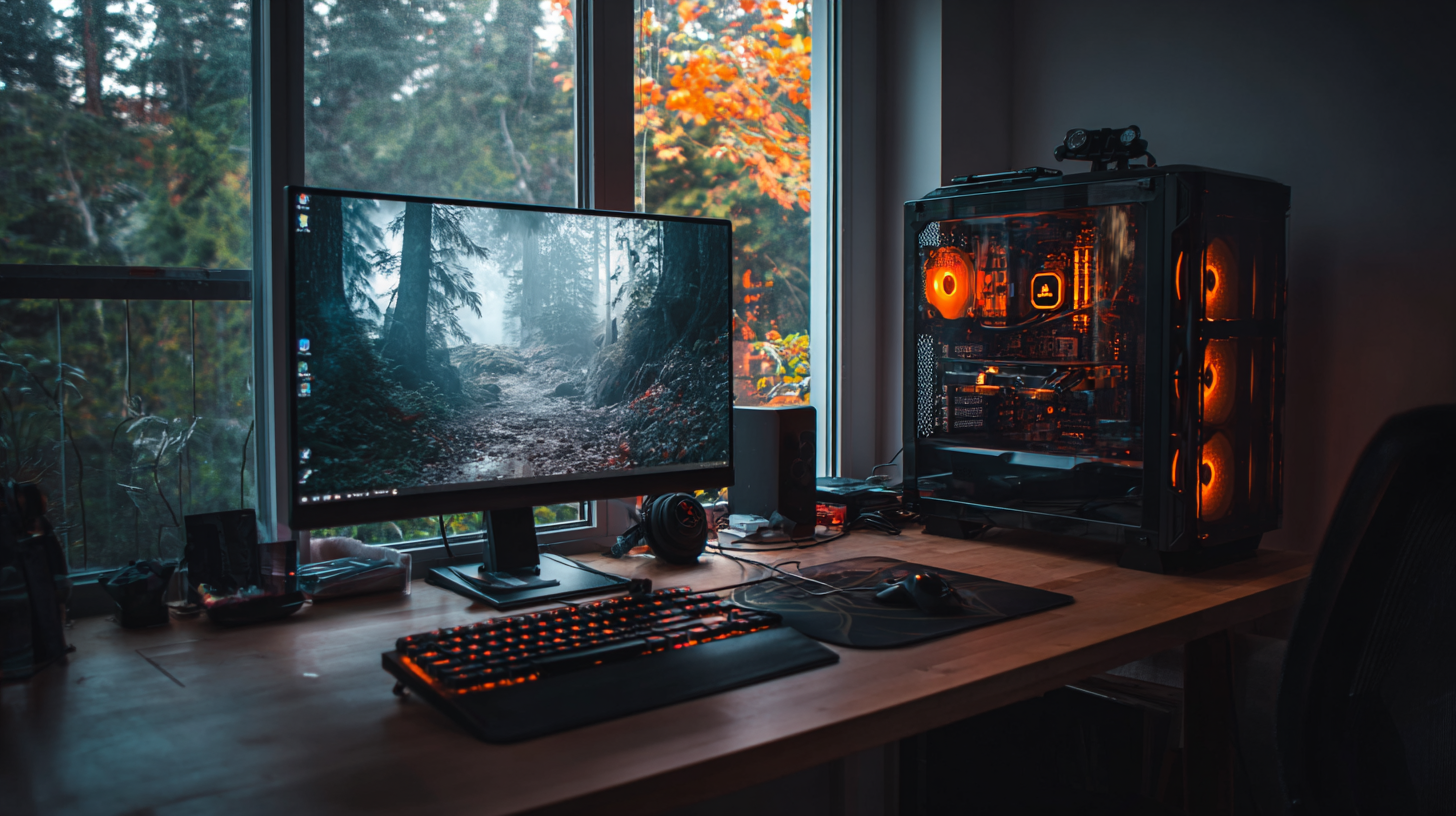
Additionally, data from PC Gamer shows that mid-range components, such as a GeForce GTX 1660 or an AMD Ryzen 5 3600, deliver the best performance-to-cost ratio, catering to gamers who want to avoid breaking the bank. Utilizing tools like PCPartPicker can help prospective purchasers not only compare prices but also find compatible components that maximize performance without pushing costs beyond their limits. Ultimately, understanding how to allocate funds across different hardware categories allows gamers to optimize their investments while still enjoying quality gameplay.
When deciding between upgrading your current gaming PC or building a new one from scratch, consider your specific needs and budget. Upgrading can be an appealing option for gamers who want to enhance performance without facing the complexities of a complete build. A well-planned upgrade, such as adding more RAM or a new graphics card, can significantly boost your gaming experience, especially if your existing components are still in good condition.
On the other hand, building a new gaming PC offers unmatched flexibility and customization. This option is ideal for gamers who wish to tailor their system to their exact requirements, choosing every component according to performance, brand preference, and aesthetics. While building a PC can be more time-consuming and requires some technical knowledge, the satisfaction of creating a system that meets all your gaming needs can be worth the effort. Ultimately, the best choice depends on how much you're willing to invest in time and money, along with the performance gains you're seeking.
| Component | Upgrade Option | Build Option | Pros | Cons |
|---|---|---|---|---|
| Graphics Card | Easier to find compatible models. | Customizable to your exact performance needs. | Easier and quicker upgrade process. | Limited performance as older tech may bottleneck. |
| CPU | Faster upgrades may be available. | Can choose the latest generation processors. | Can greatly enhance performance. | Compatibility problems with older motherboards. |
| RAM | Easy to add or replace existing RAM. | Allows for tailored specifications. | Improves multitasking and gaming performance. | Potentially slower speeds if older slots are used. |
| Storage | Can upgrade existing drives easily. | Full control over storage speed and type. | More efficient storage solutions are possible. | Costlier than simply upgrading existing drives. |
| Motherboard | No motherboard change needed for upgrades. | Can include advanced features not available in older models. | Better support for new components. | Time-consuming installation process. |
When investing in a gaming PC, future-proofing is essential for ensuring that your system remains capable of handling new games and software as they are released. To achieve this, consider components that offer upgrade potential, such as a powerful motherboard that supports the latest CPU sockets and RAM standards. Opt for a graphics card with ample VRAM, as this will enhance performance with future high-resolution titles. Avoid locking yourself into proprietary designs, which can limit your options for upgrades later on.
Moreover, planning for longevity means not only selecting high-performing parts but also maintaining them effectively. Regular cleaning, monitoring temperatures, and updating software are critical practices that can extend the life of your components. Additionally, consider investing in a power supply with a higher wattage than currently needed. This foresight allows for additional upgrades without the need for an early and costly power supply replacement. By adopting a forward-thinking approach during the initial setup, gamers can ensure their PCs remain competitive and functional for years to come.
